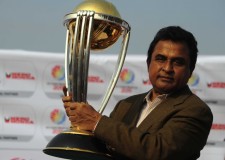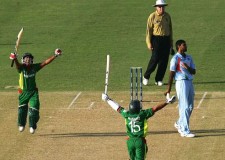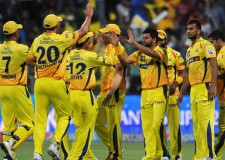Club and hospitals play blame game after Ankit Keshri’s tragic demise
Allegations of medical negligence are now hounding the tragic event which led to the loss of life of Ankit Keshri, who died of a cardiac arrest on Monday morning after an on-field collision with a teammate in a club match at the Jadavpur University Campus ground in Kolkata on Friday.
Eyewitness reports say that the teammate’s knee crashed into the neck and head region of the unfortunate 20-year-old, following which he was bleeding from the mouth. Keshri, representing East Bengal in the match against Bhowanipore Club, was taken to the nearby super-speciality AMRI Hospital immediately after the incident.
Keshri was in AMRI hospital for three days and was showing signs of recovery till Sunday evening, when he was also given oral food.
On Sunday night, Keshri was shifted to Nightingale Hospital on Shakespeare Sarani after East Bengal senior official Sadanand Mukherjee signed the risk bond at the AMRI Hospital. On Monday morning, barely hours after being shifted, Keshri breathed his last.
Nightingale Hospital, it may be noted, has a tie-up with the Cricket Association of Bengal. The state body however maintain that they shifted the cricketer for better treatment.
“It’s nothing to do with the tie-up and we shifted him purely because of better treatment,” CAB joint-secretary Subir Ganguly said.
Were not given chance to treat Keshri: AMRI
AMRI authorities claim that they were not allowed to continue their treatment of the player. Saying that the attending doctor had not advised Keshri’s discharge, AMRI CEO Rupak Barua said, “We wanted to conduct more investigations on him like CT angio and other tests but we were not given a chance to treat him because the patient was taken after the club and family authorities signed the risk bond and after which we discharged him.”
However, East Bengal senior official Sadanand Mukherjee, who signed the risk bond, claimed, “We went by what doctors told us and for better treatment we took him to Nightingale. It was a decision taken in consultation with the family.”
East Bengal coach Pranab Nandi said, “There was no indication from the hospital at all. They in fact told us that Keshri would be shifted to general bed and nothing revealed in the scan.”
Authorities at Nightingale Hospital say that the patient had developed a brain swelling(edema) which continued to grow throughout Sunday night, eventually causing the cardiac arrest on Monday morning.
East Bengal authorities did all the formalities: Keshri’s father
Keshri’s father Raj Kumar was inconsolable and said: “I don’t know why he was shifted to Nightingale. We always wanted better treatment and his East Bengal coach and officials did all the formalities (of signing the risk bond).”
Keshri’s first coach Arijit Majumdar, who has no affiliation with East Bengal, said: “We always wanted better treatment. Now we think he should not have been shifted to Nightingale and could have got a better treatment at AMRI.”
Condolences for the promising right-hand batsman’s passing away have poured in from various walks of life – Sachin Tendulkar, Shah Rukh Khan and Prime Minister Narendra Modi being some of the few to have tweeted their sadness. East Bengal club and AMRI hospital, however, are clearly at loggerheads.
Keshri’s death, which should have united all concerned people in grief, has exposed the sorry state of bureaucracy in the country’s cricket administrative bodies – the kind of bureaucracy which can hold a player’s life to ransom because of certain contractual agreements which are irrelevant to the emergency.








